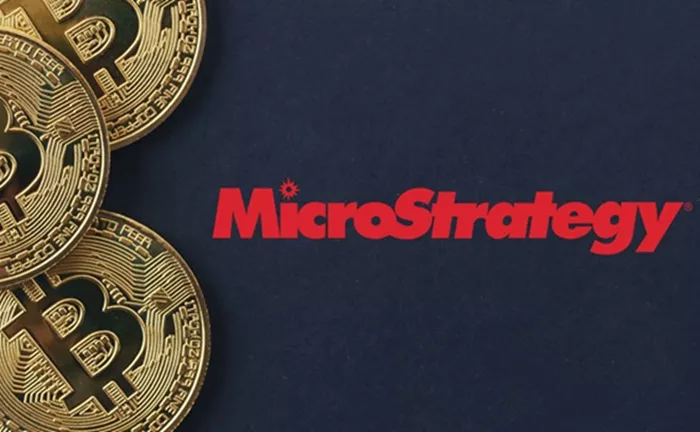MicroStrategy Inc., a prominent business intelligence company founded in 1989 and headquartered in Tysons Corner, Virginia, has become a notable player in the cryptocurrency space. Under the leadership of CEO Michael Saylor, the company has made headlines for its substantial investments in Bitcoin. This article delves into the specifics of MicroStrategy’s Bitcoin holdings, including their acquisition strategy, total holdings, financial implications, and strategic significance.
Company Profile
MicroStrategy’s foray into Bitcoin began in August 2020, marking a significant shift in its corporate treasury strategy. The company’s decision to invest in Bitcoin has drawn considerable attention from both the financial and cryptocurrency communities. By leveraging Bitcoin as a primary reserve asset, MicroStrategy has set a precedent for other institutions considering similar moves.
MicroStrategy’s Bitcoin Investment Strategy
Initial Investment
August 2020 Investment
MicroStrategy made its first major Bitcoin purchase on August 11, 2020. The company acquired 21,454 BTC for approximately $250 million. This initial investment was driven by the belief that Bitcoin could serve as a hedge against inflation and a store of value in an environment of economic uncertainty.
Subsequent Purchases
Strategic Acquisitions
Following the initial purchase, MicroStrategy continued to buy Bitcoin through subsequent transactions. The company adopted a strategy of accumulating Bitcoin regularly and opportunistically, taking advantage of favorable market conditions. These acquisitions were announced through various press releases and SEC filings, maintaining transparency about their investment activities.
Key Purchases
September 2020: MicroStrategy announced another purchase of 16,796 BTC for $175 million, bringing their total holdings to approximately 38,250 BTC.
December 2020: The company made a significant acquisition of 29,646 BTC for $650 million, further increasing its Bitcoin holdings.
Early 2021: MicroStrategy continued its acquisition spree, purchasing additional Bitcoin, including notable buys of 19,452 BTC for $1.03 billion and 2,754 BTC for $48 million.
Current Bitcoin Holdings
Total Holdings
As of early September 2024, MicroStrategy’s reported Bitcoin holdings amount to approximately 140,000 BTC. This substantial figure reflects their ongoing commitment to Bitcoin as a core component of their corporate strategy.
Average Purchase Price
MicroStrategy’s average purchase price for Bitcoin is estimated to be around $29,600 per BTC. This average is derived from the aggregate cost of their Bitcoin purchases divided by the total number of Bitcoins acquired. The average purchase price provides insight into the company’s investment strategy and market timing.
See also: How Is Holo Cryptocurrency?
Financial Impact and Market Position
Valuation
MicroStrategy’s Bitcoin holdings represent a significant portion of its corporate assets. Given the volatility of Bitcoin’s price, the valuation of their holdings can fluctuate considerably. For instance, if Bitcoin’s price rises or falls, the value of MicroStrategy’s Bitcoin assets will correspondingly increase or decrease.
Impact on Stock Performance
The company’s Bitcoin investments have had a notable impact on its stock performance. MicroStrategy’s stock price has often mirrored the price movements of Bitcoin, reflecting investor sentiment and the market’s perception of the company’s cryptocurrency strategy. Positive movements in Bitcoin’s price tend to boost MicroStrategy’s stock, while declines in Bitcoin’s value can negatively affect its stock price.
Financial Reports
MicroStrategy provides updates on its Bitcoin holdings and investments in its quarterly earnings reports and SEC filings. These documents offer detailed information on the company’s financial position, including the impact of Bitcoin price fluctuations on its balance sheet and income statement.
Strategic Significance
Hedge Against Inflation
MicroStrategy’s investment in Bitcoin is part of a broader strategy to hedge against inflation and currency devaluation. With traditional fiat currencies experiencing potential depreciation due to economic policies and global uncertainties, Bitcoin is seen as a store of value and a safeguard against financial instability.
Corporate Treasury Management
The decision to allocate a significant portion of corporate reserves to Bitcoin represents a forward-thinking approach to treasury management. By holding Bitcoin, MicroStrategy aims to diversify its assets and capitalize on the potential long-term appreciation of the cryptocurrency.
Influence on Institutional Adoption
MicroStrategy’s high-profile Bitcoin investments have influenced other companies and institutional investors to consider Bitcoin as a viable asset class. The company’s approach has set a precedent for how corporate treasuries can integrate cryptocurrency into their financial strategies.
See also: How Gateex Is Revolutionizing the Cryptocurrency Landscape?
Risks and Considerations
Volatility
Bitcoin is known for its price volatility, which can pose risks for investors. Fluctuations in Bitcoin’s value can impact MicroStrategy’s financial stability and stock performance. The company’s exposure to Bitcoin’s volatility requires careful risk management and a long-term investment perspective.
Regulatory Environment
The regulatory environment for cryptocurrencies is evolving. Changes in regulations and government policies can affect Bitcoin’s value and its acceptance in the financial system. MicroStrategy must navigate these regulatory uncertainties as part of its investment strategy.
Market Sentiment
The perception of Bitcoin and cryptocurrency markets can influence investor sentiment and market dynamics. MicroStrategy’s success with Bitcoin investments relies on positive market sentiment and continued interest in cryptocurrencies.
Conclusion
MicroStrategy’s investment in Bitcoin has positioned the company as one of the largest corporate holders of the cryptocurrency. With approximately 140,000 BTC in its portfolio, MicroStrategy has demonstrated a strong commitment to Bitcoin as a strategic asset. The company’s approach reflects a broader trend of institutional adoption and highlights Bitcoin’s role as a hedge against inflation and a store of value. Understanding MicroStrategy’s Bitcoin holdings provides valuable insights into the company’s financial strategy and the evolving landscape of cryptocurrency investments. As Bitcoin continues to gain traction, MicroStrategy’s experience serves as a case study for other institutions considering similar moves.
Related Topics:

